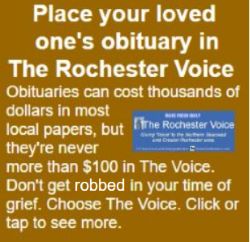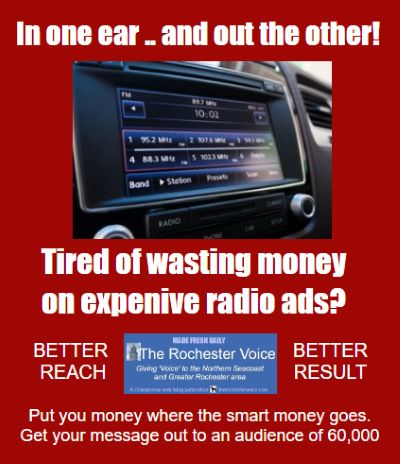
ROCHESTER - Rochester's Economic Development chief on Friday hailed Gov. Chris Sununu's announcement this week that downtown Rochester was on the list of areas across the state designated as Opportunity Zones, part of a federal program encouraging economic development and investment in neighborhoods around the country.
Karen Pollard, manager of the city's Economic Development office, said it could be a bellwether in the city's efforts to revitalize the downtown where vacant storefronts and dilapidating buildings have become a decades-long eyesore.
Pollard called the Opportunity Zones "a very powerful tool."
 |
| Karen Pollard ... Opportunity Zones 'a powerful tool' |
"Now we have to find investors who are willing to take advantage of it," she added.
The major attraction of being declared an Opportunity Zone is that capital gains taxes are deferred for 10 years, and if a building owner stays beyond the 10 years capital gains realized during those years will not be taxed.
Pollard said the economic stimulus package could induce current owners to invest in their downtown building or to sell them for a better price due to the advantages the zones offer.
"We would welcome either action," Pollard said.
The program could spur some residential unit growth, but Pollard said the overwhelming focus downtown is on mixed-use with businesses on the ground floor and residential space above.
Other areas nominated for the program include tracts and contiguous tracts, ranging from the Manchester Millyard to the White Mountains and the North Country.
"New Hampshire's resiliency lies in our local communities; they are the backbone of our society and the focal point of cultural activity," said Sununu in Franklin where the announcement was made on Thursday. "For far too long, however, some neighborhoods have been left behind. While some have thrived in recent years, others are struggling to keep up."
Sununu said that Opportunity Zones across the state will encourage investments and provide tax incentives to investors to reinvest unrealized capital gains into neighborhoods throughout the state.
"These local neighborhoods deserve an economic boost, and that is what we are going to give them. The goal is simple: to create jobs, to increase wages, and to revitalize communities across the state," Sununu said.
The program was created by the Tax Cuts and Jobs Act, which provides federal tax incentives to investors in areas designated as an Opportunity Zone and is administered by the U.S. Treasury Department. States were required to designate 25 percent of the low income census tracts in the state as Opportunity Zones.
Final designations are subject to federal confirmation and final rules for the new Opportunity Zone are being developed by the US Treasury.
Pollard said that along with Opportunity Zones, the city also has its own inducements to investment, such as a program known at 79E, which allows investors to avoid paying property taxes on improvement for a specified period of time.
"Now we just need some new marketers and the right investors to come in," she said.













